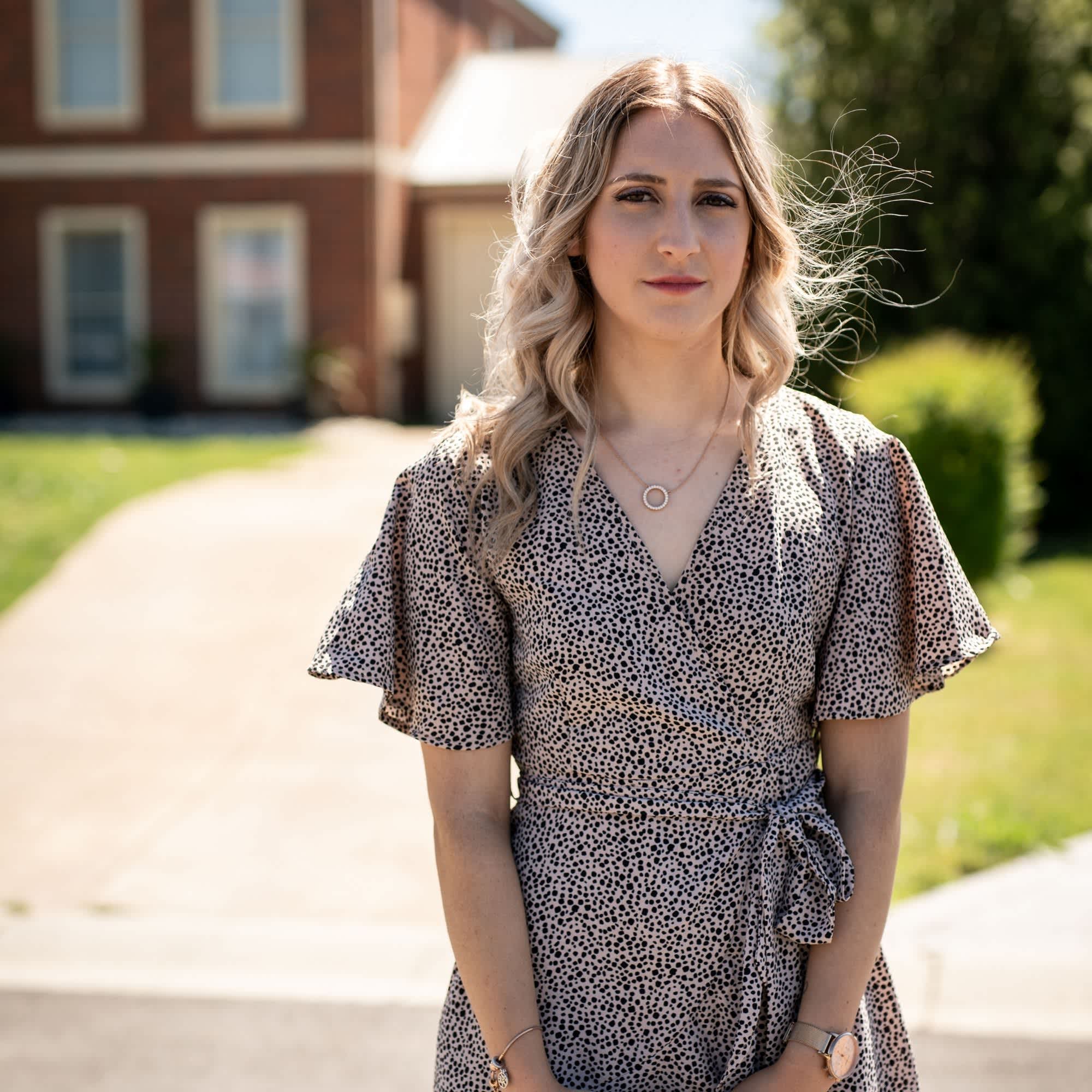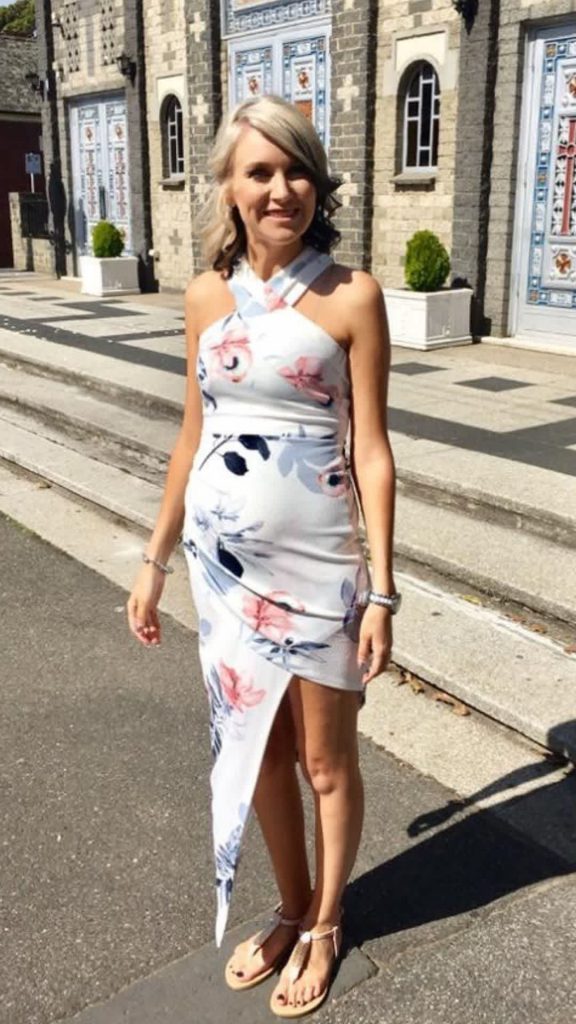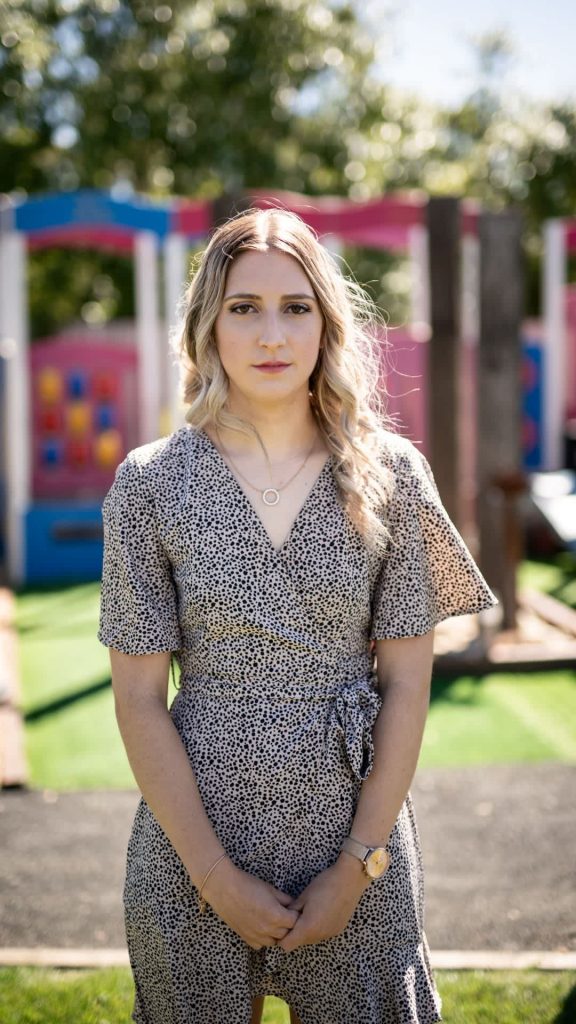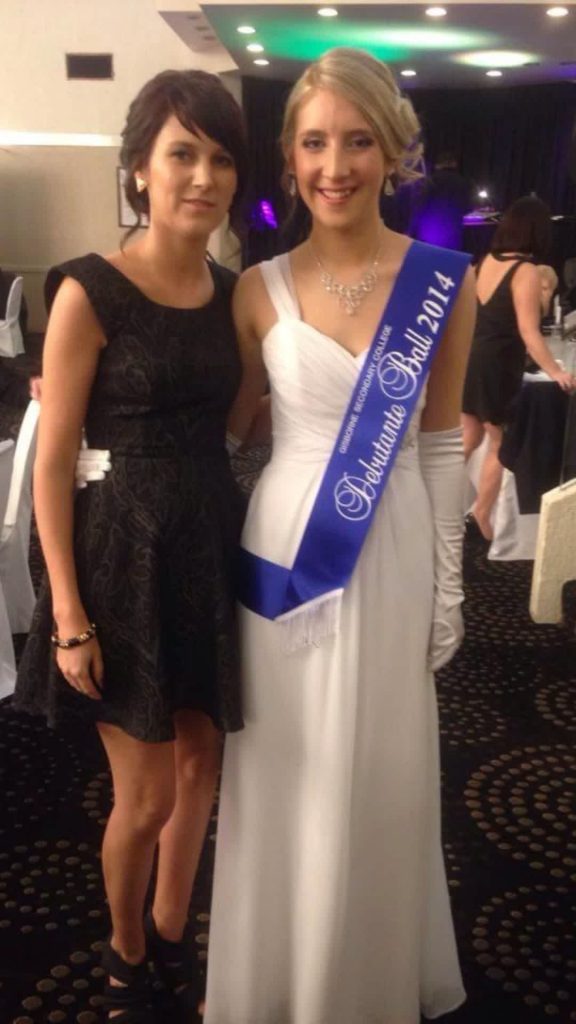
- POPSUGAR Australia
- Family
- Bianca Lost Her Sister at the Hands of Her Abusive Partner — She Has a Message For Us All
Bianca Lost Her Sister at the Hands of Her Abusive Partner — She Has a Message For Us All

**Trigger warning: this article deals with the topic of domestic violence and may be triggering for some readers.
May is Domestic & Family Violence Awareness Month — an annual event to raise community awareness of the social and personal impacts of domestic and family violence and the support available to those affected.
Bianca Unwin, whose sister Katie Haley was killed by her partner in March 2018, wants young women and teenage girls to understand how surveillance plays a part in coercive control and domestic violence.
“I would love to see coercive control more broadly recognised as a form of domestic violence,” Unwin told POPSUGAR Australia. “Despite conversations increasing, the majority of people still don’t recognise the severity of coercive control or don’t associate it with domestic violence as it’s not physical.
“I think we need to acknowledge that coercive control and manipulation is equally/ if not more dangerous than just physical violence – because it’s not as visible.”
Katie’s family are participants in a new SBS documentary called See What You Made Me Do — hosted by investigative journalist Jess Hill who has previously authored a book by the same name.
The three-part series explores the epidemic of violence against women in Australia, with Hill meeting victim-survivors who describe the shape-shifting of abusive behaviours – with violence one element among many. She also talks to the families who have experienced the horrors of domestic violence firsthand and have been left traumatised in the aftermath.
The series explains that Haley’s partner, Shane Robertson, had created fake Facebook accounts in order to stalk her — going so far as to get angry when she didn’t post enough photos of him to her social media and using his false accounts to try to gather evidence about her from her colleagues.
Robertson also set up fake Instagram accounts and constantly called her and sent her text messages, checking on her whereabouts before killing her on March 9, 2018, at their home in Diggers Rest, Melbourne. He has since been sentenced to 24 years in jail.

Speaking to POPSUGAR Australia, Unwin expressed her desire for platforms like Facebook and Instagram to step up to the plate of accountability.
“I think that social media platforms have a full responsibility when it comes to ensuring that multiple accounts using the same or similar emails are being flagged,” she said.
“Stricter verification would reduce the number of people able to create fake accounts with images obtained from Google. If an individual can do a quick reverse Google image search then I think it’s possible for Facebook and Instagram to have stricter policies and technology that alerts to a linked profile or email account.”
Unwin also explained the need to begin education around domestic violence, and the role social media can play in it, much sooner.
“I think it’s incredibly important to have these conversations about relationships and what a healthy relationship looks like during critical developmental stages,” she said.
“Most teenagers enter into their first relationships during high school, so I think it’s really important that schools implement a safe relationship education program to help guide them. It will encourage boys to look at how they view and speak about girls and it will hopefully remove toxic and bullying behaviour in relationships. By creating a safe first relationship, future relationships will follow a similar, safe and healthy path.”

Given the shockingly easy access that perpetrators have these days, not just to social media, but to a seemingly endless supply of tracking apps and surveillance equipment, it can be all too easy to monitor their partners every move.
Addressing this relatively new layer to the complexities of modern-day abuse, Unwin said: “I don’t think much really can change in regard to the availability of surveillance equipment. Unfortunately, the best way to keep women safe is to be wary and mindful of what you are sharing online and in the real world.
“Ultimately though it isn’t the equipment that is causing this behaviour — it is the individual and how they choose to use the equipment and I think we need to hold them accountable when addressing this type of stalking behaviour.”
When asked if the advent of social media has made our problem with domestic violence and coercive control worse, or if it has provided a greater platform with which to stay informed, Unwin suggests that there is no black and white answer.
“I think it’s a double-edged sword, to be honest,” she told POPSUGAR Australia. “On the one hand, social media has made it so easy to watch and obtain information about whoever you like whether it’s a stranger or your partner. Social media allows for fake realities to be created, and in turn, allows for people to hide behind fake accounts/ fake lives which makes spotting the warning signs a lot harder.
“On the other hand, social media is also giving a platform to discuss these issues outside of just domestic violence resource centres. Social media has created communities of victims/survivors who work together to help each other which is amazing.”

Offering advice to those who may be in a relationship where coercive control is present, or friends with someone in a dire situation, Unwin said, “I think the biggest thing is to recognise when you feel uncomfortable or question their behaviour. If you find yourself saying ‘that wasn’t okay’ or ‘that doesn’t seem right’, don’t dismiss those feelings.
“Don’t put it down to what society has led you to believe about intimate relationships. When recognising this behaviour, whether in your own relationship or a friend, it is so important to be open, to encourage the conversation and to not allow yourself to become isolated. If you are in the relationship talk to your friends and family, they will support you and work with you to leave safely.
“If you are the friend, don’t give up on that person, especially if they aren’t ready to recognise the type of relationship, they are in. Be there for them and continue to support them because when they do decide to leave, they need support to safely do it.”
See What You Made Me Do premieres 8:30pm Wednesday, May 5 on SBS, NITV and SBS On Demand, in alignment with Domestic & Family Violence Awareness Month and to help raise awareness for the domestic abuse epidemic. The series airs over three weeks.
If you or someone you know is struggling and needs support to call 1800RESPECT on 1800 737 732 or Lifeline on 13 11 14. Both of these services provide trained counsellors you can talk with 24/7. You can also talk to someone from 1800RESPECT via online chat. If you are in immediate danger, call 000.

